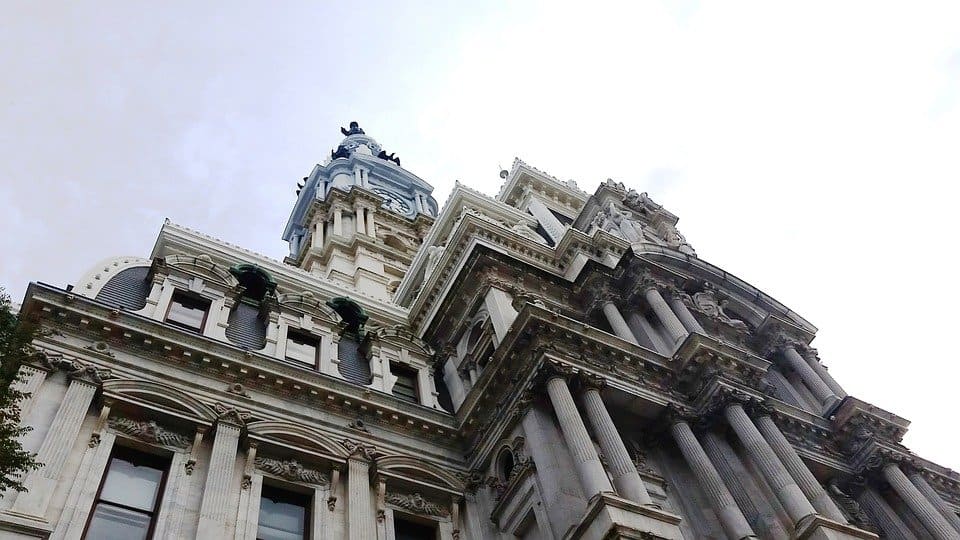
Andrew Strom is a union lawyer based in New York City. He is also an adjunct professor at Brooklyn Law School.
In 1964, Congress outlawed discrimination in employment based on race or sex, yet there is still a significant gap in the wages paid to white men compared to wages paid to other groups. Last year, the City of Philadelphia tried to address this wage gap by passing a law prohibiting employers from relying on a prospective employee’s wage history in determining the employee’s wages unless the applicant “knowingly and willingly” discloses her wage history. To prevent coercion and to make it easier to enforce this prohibition, the law further bars employers from inquiring about a prospective employee’s wage history. Before the law even went into effect, the local Chamber of Commerce sued, and last week Judge Mitchell Goldberg issued a split decision, upholding the portion of the law that bars employers from relying on wage histories to set wages, but striking down the provision that bars employers from making inquiries about an applicant’s wage history. This illogical compromise is the latest example of what Charlotte Garden has called the deregulatory First Amendment.
The Philadelphia law (and similar laws in California and Massachusetts) is based on the premise that “since women are paid on average lower wages then men, basing wages upon a worker’s wage at a previous job only serves to perpetuate gender wage inequalities.” Judge Goldberg agreed that Philadelphia may bar employers from relying on a prospective employee’s wage history in setting the employee’s wage rate. But, somehow he refused to acknowledge that the only way to make that prohibition work is also to bar employers from inquiring about a prospective employee’s wage history. The prohibition on inquiries about wage history is similar to a provision in the Americans with Disabilities Act (ADA) that bars employers from asking prospective employees about their medical histories. In the almost thirty years since the ADA was passed, courts have repeatedly enforced the ban on pre-employment medical inquiries. Similarly, many states have laws barring discrimination based on marital status, and those laws make it illegal for an employer to inquire about a prospective employee’s marital status. Again, courts have enforced those bans.
So, what was different about the Philadelphia law? The main difference is that the Chamber of Commerce convinced the judge that some uses of wage history would be valid. The court identified two ways that an employer might validly use wage history information – “gathering market information or identifying applicants whom employers can or cannot afford.” But, employers will always be able to think of ways that prohibited inquiries might yield useful data. For instance, an employer could plausibly argue that asking all applicants about their medical conditions might yield useful data that would help determine which options to offer in the employee cafeteria. Or the employer could claim that it might do more outreach if it found that people with certain disabilities were underrepresented in their applicant pool.
The test that the Court applied was not a new one – it came from a 1980 Supreme Court case called Central Hudson Gas & Elec. Corp. v. Pub. Serv. Comm’n. of New York. Under that test, a court will uphold a government regulation restricting commercial speech if the regulation advances a substantial governmental interest in a manner that is “not more extensive than necessary to serve that interest.” The Chamber of Commerce conceded that Philadelphia has a substantial interest in promoting wage equity and reducing discriminatory wage disparities, so the only issue was whether the ban on prior wage inquiries advanced that interest. And this is where Judge Goldberg jumped the rails. The City provided an affidavit from a labor economics expert, Dr. Janice Madden, who explained that there is general agreement among labor market researchers that women and/or members of racial and ethnic minorities receive lower wages than comparably qualified men and/or members of majority racial and ethnic groups. Dr. Madden cited six different studies for the proposition that substantial wage differentials by wage and gender are not explained by credentials. Judge Goldberg’s treatment of these studies is baffling. For instance, one study found that “differences in observable factors such as education and experience levels can explain more than a quarter of the black-white wage gap for men and over a third of the gap for women.” In other words, these factors do not account for the vast majority of either wage gap, yet Judge Goldberg found that this conclusion contradicted Dr. Madden’s premise.
Philadelphia also relied upon an article by Dr. Victoria Budson at Harvard’s Kennedy School in which she stated that because women begin their careers with lower salaries, it is “empirically true” that they will make less when employers base future salaries on that initial lower salary. Judge Goldberg discounted this obvious conclusion because Dr. Budson admitted that there is no research yet that has tested this claim.
In effect, Judge Goldberg ruled that before elected officials can enact laws restricting pre-employment inquiries, they must first conduct peer reviewed studies testing their hypotheses. In other words, so much for the days when states and local governments were supposed to be the laboratories of democracy, trying out different approaches, and making adjustments based on experience. Now, apparently, our elected officials can only regulate businesses if they can convince an unelected judge that studies, data, and statistics definitively prove that their preferred policy solution will work.









Daily News & Commentary
Start your day with our roundup of the latest labor developments. See all
February 20
An analysis of the Board's decisions since regaining a quorum; 5th Circuit dissent criticizes Wright Line, Thryv.
February 19
Union membership increases slightly; Washington farmworker bill fails to make it out of committee; and unions in Argentina are on strike protesting President Milei’s labor reform bill.
February 18
A ruling against forced labor in CO prisons; business coalition lacks standing to challenge captive audience ban; labor unions to participate in rent strike in MN
February 17
San Francisco teachers’ strike ends; EEOC releases new guidance on telework; NFL must litigate discrimination and retaliation claims.
February 16
BLS releases jobs data; ILO hosts conference on child labor.
February 15
The Office of Personnel Management directs federal agencies to terminate their collective bargaining agreements, and Indian farmworkers engage in a one-day strike to protest a trade deal with the United States.